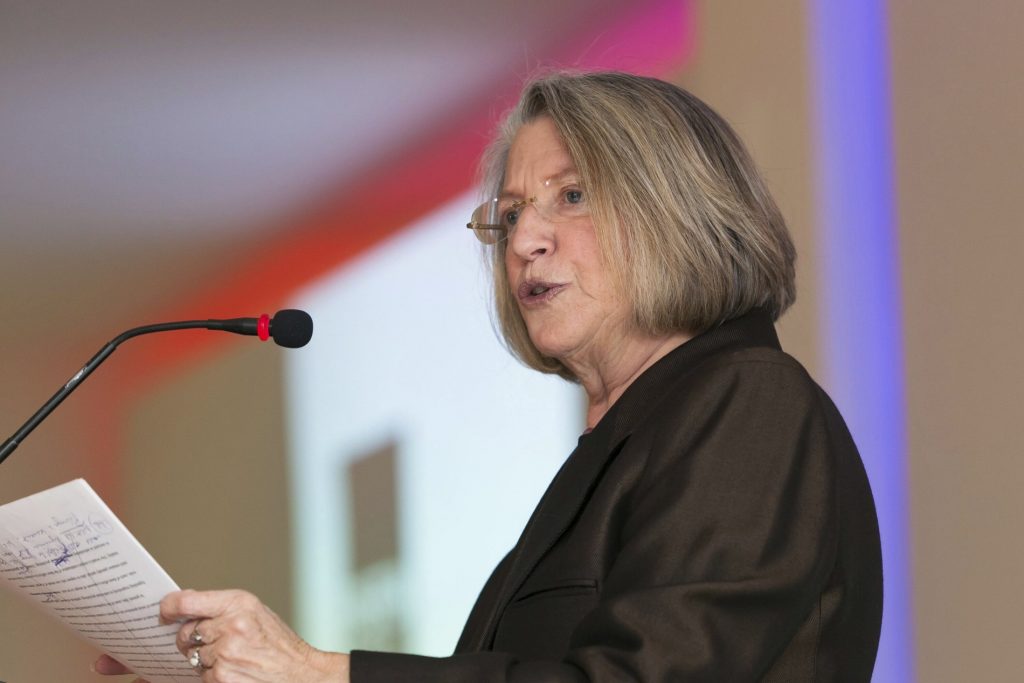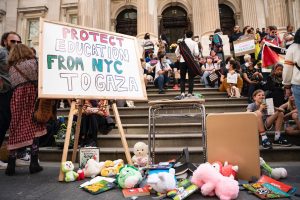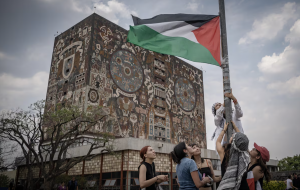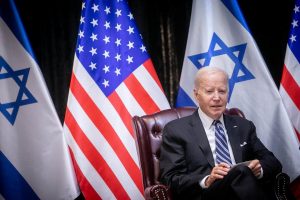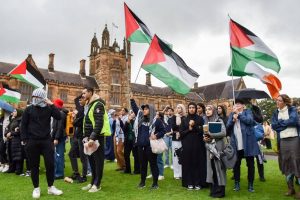You just got fired from a guest professorship at the University of Cologne because you signed the Philosophy for Palestine statement, which condemns Israel’s “unfolding genocide” and “system of apartheid.” Can you tell us what happened?
I was invited to Cologne last July. I signed the statement in November. Just last week, even though the statement had been live for a long time, I got an email from Professor Andreas Speer telling me the rector had expressed concern. I thought this was very inappropriate. I was invited on the basis of my scholarly work, which has nothing to do with my views on Israel/Palestine. I wrote back to say that there are many different views, and that there is a lot of pain on all sides — including for me as a Jew. But I emphasized there was no disagreement about the importance of free, open, and respectful discussion, as the rector had put it. My lectures have nothing to do with Israel/Palestine. Within 24 hours, I received an email from the rector: Since I was not willing to renounce my views, he had no choice but to cancel the professorship.
You’ve worked at different German universities over the years. Has this ever come up before?
Never, but then again, I haven’t been as outspoken as some of my colleagues. The current situation in Gaza is so extreme that I felt I did need to speak out.
A few months ago it was revealed that a private lecturer at the same university was at a secret Nazi meeting discussing plans to deport millions of people. The university announced a months-long “investigative process” about his status, which has been going on for several months. Was there such a process with you?
No, it was just a handful of emails, and all over within 24 hours. They’re saying this professorship was just an “honor” and not an academic appointment. But this is bogus. I was selected by a group of professors, and if the rector overrides them, he is infringing on academic freedom. It’s also an attack on political freedom. The message it sends to everybody in Germany is: if you express certain views, your job is in danger.
Anyone with views to the left of center could be kicked out of the universities — a dream for right-wing politicians. This is why many academics have protested, including from Germany.
Right. And the sad part is that Germany claims to be taking responsibility for Jewish people because of the Holocaust. But then these measures are directed against — not only, but also — Jewish intellectuals and artists. There’s a very restricted idea in Germany about the “Good Jews” you should be protecting, and the “Bad Jews” you can repress. I would like to say to the German public sphere: We are all Jews, and don’t equate Germany’s responsibility to us with supporting everything the State of Israel does.
This is not the first case in recent months. Jewish people like Judith Butler, Masha Gessen, and Candice Breitz have had awards revoked and shows cancelled.
I very much admire them — I’m proud to find myself in their company, even if that wasn’t my intention. We are very inconvenient to people who want to restrict a real, open discussion of what is going on in Palestine. When Jews like us say we have different views about Israel, that’s an inconvenience, and maybe even a threat.
How did your biography affect your views?
I come from an assimilated family that was not very religious at all. My grandparents left Europe in the early 20th century, before the rise of fascism. As a junior high school student, I became engaged in the civil rights movement. In those days, Baltimore was a legally segregated city with Jim Crow laws. African Americans could not eat at the same restaurants or swim in the same swimming pools. I gravitated quickly to the desegregation struggle. I had a classic ’68 generation itinerary, from civil rights to the Vietnam war to SDS [Students for a Democratic Society] to feminism, and so on and so forth. I was never particularly involved with Israel.
I spent six months in a kibbutz in the immediate aftermath of the ’67 war. There was a call for volunteers to come and help with the harvest. I thought a kibbutz had something to do with socialism, but I was rather quickly disillusioned, because I encountered an anti-Arab racism that was very similar to the anti-Black racism in the United States. There was an Arab village across the road, and the kibbutz would not allow the Arab children to use the swimming pool. I thought: “Oh my god, this again?”
That was my close encounter with Israel. When I returned to the United States, I threw myself into the panoply of New Left political engagements, and I did not focus on Palestine.
Both in the United States and in Germany, the governments are giving strong support to Israel, even if the majority of the population is critical. There is a lot of repression at universities against Palestine solidarity — even when it’s coming from Jewish students. Do the two countries feel similar?
We face our own forms of McCarthyism here in the United States. But it’s not as severe because we have succeeded in staging more of a public debate. In previous years, the voices of Palestinians and the solidarity movement were swept under the rug. But now they are being heard and we have a more balanced debate. I hope something like that will emerge in Germany as well.
Here in the U.S. we have a large and politically active Jewish population — much larger than in Germany. For decades, the most prominent Jewish voices have been straightforwardly pro-Israel. But in recent years, organizations like Jewish Voice for Peace and Not In Our Name have let Jewish people come out as critics of Israeli occupation. Bernie Sanders is the most prominent Jewish politician. He had been a strong supporter of Israel, but he has changed — lots of people are changing. Some people thought he was too slow to call for a permanent ceasefire, but now he has.
Pro-Israel forces like APAIC are losing control of the narrative. And now, with the carnage in Gaza, the voices of critical Jews have been amplified. In Germany, in contrast, everybody is talking about Jews, but not with us.
First published in German in ND on April 9, 2024


